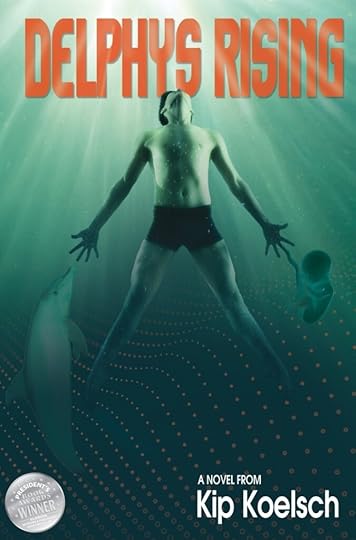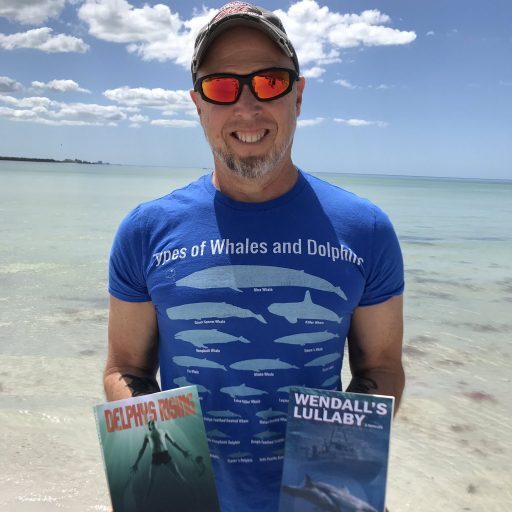Kip Koelsch's Blog
October 12, 2025
RESONANCE – A very personal, fictional story
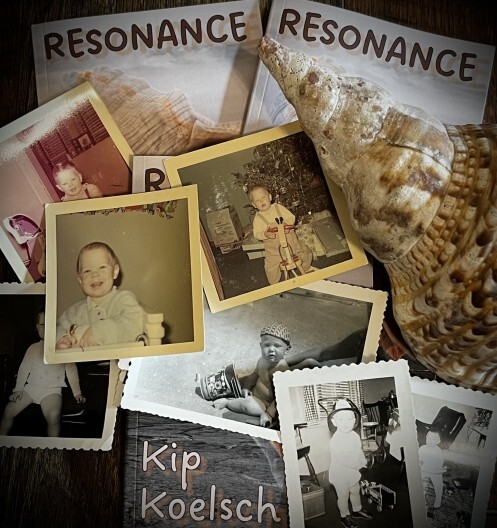
Nearly ten years before I was born, my parents first son, Artie, passed away–the victim of a respiratory illness that would be very treatable today. For most of my life, I have felt a “special connection” to this brother I never knew.
Artie was not quite three years old when he was lost to my parents and my sister. My brother was born a year later.
I don’t know much about Artie–his likes and dislikes–his personality. He was still a toddler when he died, so much of his personality was likely undeveloped. I do know that my parents went through a difficult time–grieving their firstborn and my father’s namesake. I know they found some solace with renewed involvement in the Methodist Church.
That was all I knew. Of course, perceptive and imaginative child that I was, I speculated. Maybe I was the “replacement son.” Maybe their healing was only complete when I was born. When I looked at old baby photos of my brother and compared them to mine, I saw similarities. I was a bit haunted by the possibility. Early on, I too was hospitalized with a respiratory infection–and continue to be more susceptible to similar ailments even in adulthood. Again, a bit haunted by the possibility.
These thoughts resurfaced upon the passing of my father in 2021. While sorting through his belongings, I came across a trove of family photos–including images of Artie that I hadn’t seen in decades. The old possibilities surfaced and swirled–stirred even more by fiction-writing mind.
The product was a flurry of notes to get ideas down on paper–then nothing. I had other writing projects (The Peculiar Affliction of Thomas Wade Duncan and two short stories) that were much further along and warranted my attention. But once they were published, I turned back to my notes on Artie.
The first draft was a directionless mess of memories and images–real, fictionalized, imagined, unsure. I spent nearly two years rewriting and editing. During that time, I’d delved a bit more into reading and watching and learning about folk horror–and added the central role of the seashell into the narrative. That was a turning point. Still, I wasn’t satisfied with the end product–and I moved on to work unenthusiastically on other writing projects culled from my notebook.
In the interim, Hurrican Helene happened. Our home in Dunedin, Florida, was filled with nearly four feet of storm surge and our lives were upended for months. Countless family photos were lost or damaged. What was saved, were nearly two dozen photos of my brother, Artie. Prompting more thoughts about the unfinished story but no action. My wife and I were understandably preoccupied with wrapping up our time in Dunedin and finding a new home.
In January of 2025, we settled into our home in Melbourne, Florida, and I began tapping at the keyboard again–though it was the “other writing projects” that had my immediate, though still somewhat sporadic attention.
But with little real progress on those stories after a few months, I decided to make my way back to Artie. I pulled out the saved photos, brainstormed some new ideas, and rewrote the story again. Satisfied with all but the ending, the draft was sent to my editor. While it was in his hands, I managed to write the ending I wanted.
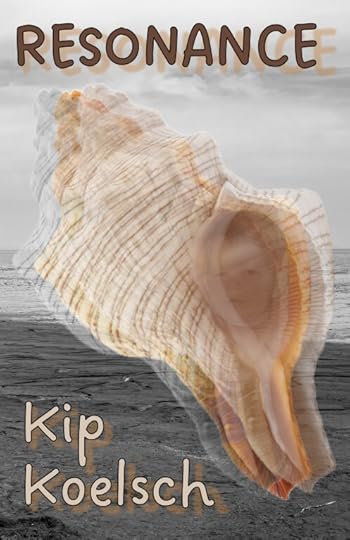
The product, RESONANCE, is a long work of short fiction–a novelette. I struggle to define its genre–as it crosses many boundaries in my writer’s mind. So, I’ll leave that categorization to others. All I know is that for me, it is probably the most personal fictional work I’ve written to date.
RESONANCE will be released on Monday, October 13–what would have been my parents’ 74th wedding anniversary.
The Elusive Truth – Critical Thinking – Precise Meaning
PRECISE MEANING
People who talk to each other in English aren’t always speaking the same language. Ordinary words have different meanings for different people. For example, words that tell how one feels about something have personal meanings.
“Coffee tastes better than tea.”
“Cocoa Village is cooler than downtown Melbourne.”
“Hockey is more exciting than football.”
What do you mean by “better,” “cooler,” and “more exciting” is different from what other people mean, and no one else in the world has exactly the same taste as you.
WORDS
words don’t have any meaning by themselveswords carry meaning from one person to anotherthe meaning the speaker intends is not necessarily the meaning the listener hearsin order for the meaning to be transmitted successfully, key words often need to be discussed and definedSYMBOLS
words or objects that represent ideasexamples: a heart represents love; a skull and crossbones to represent deathsome symbols have different meanings to different people

STEREOTYPES
a fixed mental image of a person, place, idea, or eventnot a picture of what something actually is, but a picture of what we expect that something to bethe less we know about something, the stronger the stereotypes tend to bestereotypes are difficult to avoidin order to make sense of the world, our minds tend to standardize what we seethey let us know what to expectyet, stereotypes never correspond exactly with realitysome are more accurate than othersall are oversimplifications which tend to block out individual differences, contradictions, and nuancesat their worst, stereotypes block out realitystereotypes are difficult to changewe tend to notice what fits our stereotypes and avoid evidence that doesn’t fitbecause we all use stereotypes, we should constantly be aware of their weaknessesstereotypes are not what reality is but what we think reality isstereotypes tend to oversimplify complex facts and ignore individual differencesstereotypes resist changeAPPEALS TO EMOTION
they come from many sourcesmost common are advertising/marketing and political speechclever use of vocabulary (often very descriptive) to influence your emotionsEUPHEMISM
a nice way of saying something unpleasant“Steve is no longer with us” vs. “Steve died”“Your paintings sure are different” vs. “Your paintings are ugly”sometimes used to protect people’s feelingssometimes used to make unpleasant news more bearablebut they can also be used to make ordinary facts seem exciting or to cover up the truthNazis referred to their death camps as “relocation centers”the mental torture of American POWs during the Korean War was referred to by the North Korean communists as “reeducation”JARGON
most common meaning: unintelligible or meaningless talk or writingwords/language used by writers when they want to impress you rather than communicate with youcan also mean: the language particular to a trade, profession, or other groupyour academic major or area of interest may have its own jargonthis special language can also be used to obfuscate real meaningjargon should always be defined according to the audience for your writingINDEFINITE NUMBERS
words likeseveralmanymostoftenit was commonly believedmay be used by authors to disguise the fact that they don’t have much information about a subjectspecific numbers provide a stronger argumentExample: From the colonial period on, many Americans believed in expansionism.How many? Three? Sixteen? Twenty thousand? Forty percent of the population? It is not clearIMPRESISE MEANING is a common tool of propaganda and those with weak or no evidence to support their arguments.
AUTHOR’S NOTE: Many thanks to Philip Roden and his short text, The Elusive Truth. Though long out of print, it is still an exceptional resource for introducing the basics of critical thinking and message analysis.
October 10, 2025
The Elusive Truth – Critical Thinking – Underlying Assumptions and Point of View
UNDERLYING ASSUMPTIONS AND POINT OF VIEW
Is the first cat large, or is the second cat small?
[image error][image error]Is the zebra a white animal with black stripes or a black animal with white stripes?
[image error]What color is a flesh-colored bandage?
Is the glass half full or half empty?
[image error]Your answer to some of these questions depend on your underlying assumptions. If you assume that human flesh is pinkish, you’ll answer differently than if you think that the color of human flesh is varied.
Your answer to some of the other questions depends on your point of view. The answers to the questions about the cats, the zebra, and the glass of water depend on the observer’s outlook. An extremely thirsty person might regard the glass as nearly empty. A child being forced to drink half a glass of distasteful medicine might see it as nearly full.
Identifying underlying assumptions and point of view will help you evaluate people’s opinions, including your own.
UNDERLYING ASSUMPTIONS
the “truths” that the arguer takes for granted.the foundation on which an argument is builta weak foundation often equals a weak argument that will collapse under rigorous examinationsometimes an arguer is aware of their assumptions and will point them out to an audiencemore often, we don’t recognize our underlying assumptionssometimes believing in them so deeply that, for us, they are self-evident truthsPOINT OF VIEW
How you look at a problem influences your thoughts and how you look at a problem can be affected by a variety of influences.
TIMEwe tend to see things in terms of the time when we are livingwhat seems unusual today may have seemed normal in the pastPLACEwhere you look from can affect your point of viewif you are looking from suburban Florida, healthcare or unemployment problems in urban Chicago may seem terribleif you are looking from urban slums of Bombay, India, conditions in Chicago may look very good.ROLErole can change your point of viewto a person in the role of taxpayer, high taxes are badto a person in the role of one who benefits from good public schools, the taxes may seem reasonableEXPECTATIONSFor most rock stars, being met at the backstage entrance by two hundred people would be a sign of real popularityBut if thousands of fans were expected, then two hundred doesn’t look like muchVALUESan act may be seen as good if it’s done by people whose cause you approve ofthe same act may be seen as bad if you dislike the group or causeThe character of an occurrence depends as much upon the viewer as it does upon the occurrence itself. We look at something, and we decide if it is bad or good, large or small, acceptable or unacceptable.
SELF-IMAGE AND POINT OF VIEWall of us have self-imagesopinions about our talents and personalitiessometimes positivesometimes negativedetermined by who you are at one point in timedetermined by what you have done/experienced up to that point in timedetermined by whom or what you compare yourself toAuthor’s Note: I will be posting a few excerpts from my lectures on critical thinking. Portions are based on the out-of-print book by Philip Roden: The Elusive Truth. I feel that current events make exploration of these tools–used to analyze and think about messages and identify tools of manipulation and propaganda–more important than ever.
January 24, 2025
My Science-thrillers!
August 9, 2024
Cardinal Sin – Final
That’s how it came to this: lying in a boney heap by the fire and using my remaining strength to draw the cardinal into my grasp with a few shakily placed seeds.
I was desperate enough to forget my oft-repeated promise.
Or was I? Was my mind too addled to muster another apology or too clouded to have any meaningful internal dialogue?
While staring at the red bird in my hands, my failing body almost imperceptibly hunched forward. Chin to chest, I looked straight down on my little friend. I sighed and focused. Was it worth killing and eating my only companion to possibly survive another day or two? There was no other food to be found—I’d consumed all my stores, and the blight had killed every other living thing in the forest. There was no point in prolonging my life—was there?
A moist drop on my hand elicited a blink—an attempt to clear my blurred vision. I expected to see a tear—instead the drop running down my finger was tinged red. Blood? The blight? Were my insides being liquified by the virus?
There was no point.
My heart raced at the realization—quick, weak palpitations. The deep breath I tried to take turned into a gagging exhale. The next attempt at inhalation was erratic, labored, and raspy. As I focused hard on my breathing, my fingers relaxed—opened just enough so that my little friend could fly away. Yet, he stayed. He stood on my open hands—trembling. His little head tilted repeatedly from side to side—looking up to me. I smiled and closed my teary eyes.
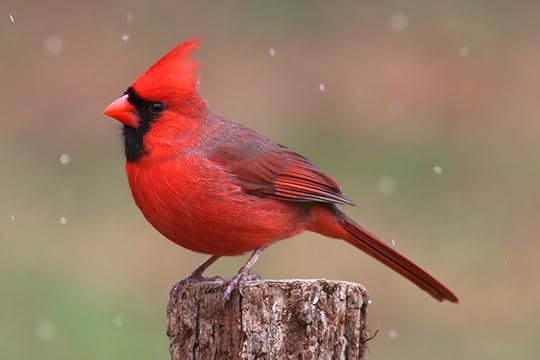
Through the pulse pounding in my ears and over my labored breaths, I could hear him begin singing a few notes: cheeeer-a-dote, cheeer-a-dote-dote-dote, purdy, purdy, purdy.
I don’t recall if my breathing grew easier or my pulse quieter. All I do know is that soon, his song was all I could hear.
Wheet, wheet, whoit, whoit, whoit.
Cheeeer-a-dote, cheeer-a-dote-dote-dote.
Wheet, wheet, whoit, whoit, whoit.
Purdy, purdy, purdy.
As I listened to those sweet, comforting notes, the persistent dull ache in my bones subsided, and all I could feel were my little friend’s tiny feet lightly tap-tap dancing in the palm of my hand.
Wheet, wheet, whoit, whoit, whoit.
Cheeeer-a-dote, cheeer-a-dote-dote-dote.
Purdy, purdy, purdy.
Wheet, wheet, whoit, whoit, whoit.
Cheeeer-a-dote, cheeer-a-dote-dote-dote.
END
Cardinal Sin – 6
The ebb and flow of a breeze in the now leafless treetops. The creak and crack of splintering dry tree trunks. The crash of brittle branches falling in stronger winds. The death rattle of a once vibrant ecosystem. That was all I could hear beyond the boundaries of my homestead.
My crops withered along with the forest. Drought or blight? Both? The answer really didn’t matter.
I entertained replanting but couldn’t waste my dwindling supply of clean water, corn kernels, or navy beans on empty hope.
The rain never returned—rendering the collector I’d built useless beyond the brief occupation of my mind and hands. The dew collector was little better—producing about a half a cup of water daily. The typically oppressive Florida humidity was also a thing of the past.
Each day, I gagged down the meagerest mash—a light handful of dried corn and beans soaked overnight in a quarter cup of water–until the last bin was emptied.

As my body and my world shrank, I still found comfort in the cardinal’s crunching on the few tiny grass seeds left in my pocket, the crackling fire, and my little friend’s singing.
In bed at night, the sounds were less pleasant—my raspy, labored breath and the inconsistent beat of the pulse in my ears.
***
[Stay tuned for the final installment of “Cardinal Sin”]
Cardinal Sin – 5
I don’t recall whether the stench of death eventually subsided or if my olfactory receptors were just overloaded to the point of indifferent saturation, but, at some point, the aroma in the air cleared.
Sadly, it was but a brief respite—as one day soon thereafter, the forest was saturated with the recognizable and overwhelming scent of rotting fish.
Water jugs optimistically in hand, I jogged the path to the spring. With each stride, the odor strengthened. My tears burned, and the gagging became involuntary. At the spring, I dropped my jugs—the sight was devastating. Dead fish roiled on the normally clear surface. I followed the short outflow to the main river—the shoreline was covered, the channel choked.
Collapsing to the ground, I vomited.
Where was I to get clean water?
I vomited again and curled into a ball.
Where was I to get clean water?
It was some time before that pounding thought subsided and I noted the newly unnatural silence. Sure, the flow of the spring run was still audible, but something else was missing.
Insects.
The constant background chittering of the Florida woods was gone. I opened my eyes and surveyed the rotting fish on the shoreline. There were no flies feasting or laying eggs on the bloated carcasses.
When I returned to camp, my little friend darted from perch to perch. He knew I had deviated from our daily routine, but still followed me as I checked my reserve water tank and sorted through the meager supplies in my small storage shed.

On my walk back, I’d worked out a plan to construct rainwater and dew collectors—as I no longer had confidence in the safety of the spring water. But busying my mind and hands with this new project wasn’t nearly enough to keep other, darker thoughts at bay.
I lifted my eyes from the piece of plastic sheeting I’d been cutting and stared off into the woods.
The blight was close.
My stare moved to my browning crops.
How long had it been since the last rain?
I shook my head—I could not recall.
***
[Stay tuned for the next installment of “Cardinal Sin”]
August 8, 2024
Cardinal Sin – 4

The first carcass was splayed across one of my well-used trails. I discovered the doe on my daily trip to the spring for water. The poor thing was obviously in the process of giving birth when she expired. The fawn was a half-delivered, twisted mass of bloody tumors, and misshapen legs. The doe’s eyes, ears, and nose were caked with her own blood—familiar manifestations of the blight. A bad sign.
Within a few weeks of that first sighting, all the mammals in the forest were dead or dying. The stink was unbearable, but I still had to venture into the woods—to forage and fetch water. While picking wild oranges and grapefruit one day, I found the maggot-infested carcass of a red shouldered hawk. I wept a little at the loss of the familiar creature. It had often watched me forage in the historic grove from a perch on a nearby pine sapling that leaned gently to the right.
Other birds soon began dropping from the trees and sky. The putrid stench of death tainted every breeze. Oddly, my little friend survived. I crafted a soft “nest” for him—an unused wool shirt stuffed with shredded palm wood and Spanish moss—and placed it under cover next to the front door of my shelter. Each day, I provided a tiny bowl of fresh water and an adequate number of small seeds I’d collected on my forays in the woods. He never again left the boundaries of my camp.
***
[Stay tuned for the next installment of “Cardinal Sin”]
Cardinal Sin – 3

In the refuge of the forest, my little friend was my only regular company. It had been eight years since I’d associated with other people. I was already a bit of an introvert—but the onset of the blight and the heart-breaking loss of my wife to that horrible, yet indifferent pandemic only amplified that misanthropy. My remaining time in what was left of civilization was spent preparing for the day the townspeople’s initial spirit of cooperation frayed into chaos. That happened barely two years after the collapse—as the stillbirths continued, the adult fatalities surged again, supplies dwindled, and connections with other towns and cities ceased.
On the first night of widespread violence, I quietly left with what I had hoarded–enough food, seeds, tools, and weaponry to establish and maintain a remote forest camp for decades. Or so I had thought.
No townspeople endured that final barbaric gasp of human cruelty. Or perhaps the blight took the few that did. Either way, what made me think I was immune—that the effects of that adaptable, species-jumping virus would never reach into the forest?
Hubris?
No. I knew what the blight had done to people, animals, crops, and natural environments on other continents in the pandemic’s formative days and weeks—before worldwide communications had completely collapsed.
Denial?
Maybe. But, more likely, it was just the establishment and maintenance of my routines. My head space was fully occupied with keeping my camp, crops—my life—going day to day. I didn’t have the mental energy to waste on thinking about another resurgence of the blight—until the deer began dying.
***
[Stay tuned for the next installment of “Cardinal Sin”]
August 7, 2024
Cardinal Sin – 2
I’d been settled in my forest camp for nearly two years—a small hut, large garden, storage shed, and well-established daily routines–when the cardinal first appeared. It was impossible to miss his flitting from a nearby branch to the ground amongst my rows of corn—that most welcome flash of red against the monotonous green and brown of the forest and my struggling crops. It was also impossible to miss the involuntary grin that had taken over my face.

That first morning, he picked at the few stray, dry kernels I’d not collected amongst the cornhusk mulch. His foray was brief, and he made not a sound before flying to the top of a waist-high cornstalk and then off into the surrounding woods. I stood and stared into that stand of palmettos and oaks for some time—trying in vain to catch another glimpse of that little red flash, trying to keep my smile from waning.
***
My morning weeding of the garden was nearly complete when the cardinal made his return the next day. Again, he flitted to the ground to pick at stray seeds. Again, I grinned at the sight. He lingered a bit longer this time, and I quietly sat on a nearby stump to watch him work—delaying my daily trip to the spring to refill water jugs.
For the first few months after his initial appearance, the garden was the only place he visited—and the only place I would pause my routine to observe his foraging. Honestly, watching him feed became part of my revised daily schedule—until one day my little friend returned later in the day—perching on the clothesline just at the edge of the glow cast by my evening cooking fire.
My little friend.
It’s how I always thought of him from that moment on. Subconsciously, I know I avoided giving him a proper name—proper names being associated with a certain level of intimacy and a certain level of intimacy being associated with the overwhelmingly immense pain of loss in recent years.
My little friend.
Later that evening, as I ate, he sang for me for the first time. A deliberate and slow wheet, wheet, followed by a quick whoit, whoit, whoit that he repeated for nearly an hour.
My little friend.
When he stopped singing, I turned towards the clothesline and calmly said, “I will never harm you, my friend. I will never harm you.”
His head tilted slightly to the right before he flew off—beyond the glow of the firelight.
***
We grew close over the ensuing years. Perhaps as close as a man and a cardinal could get. Though he never showed interest in perching on my arm or shoulder, and I could never quite coax him to eat seeds from my hand, he made more and more regular appearances and spent more time within the boundaries of my camp.
My little friend’s songs also became increasingly elaborate over time—his standard wheet, wheet, whoit, whoit, whoit, was often followed with cheeeer-a-dote, cheeer-a-dote-dote-dote, or purdy, purdy, purdy.
For me, this embellishment and the length of the songs was a sign of his increased comfort in my presence—his trust. Still, nearly every day, I repeated my promise at least once.
“I will never harm you.”
By sprinkling a few smaller seeds on the ground—gradually closer and closer—I was finally able to coax him next to my seat. Eventually, he allowed me to gently stroke his soft, red feathers.
***
[Stay tuned for the next installment of “Cardinal Sin”]


